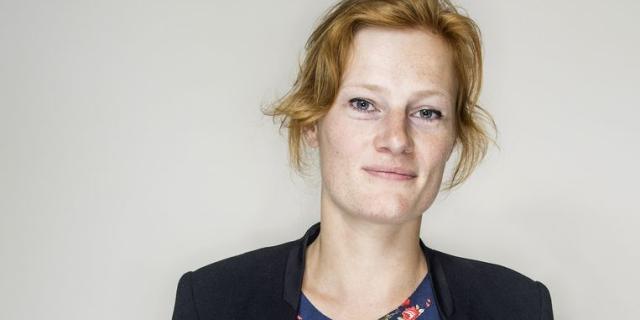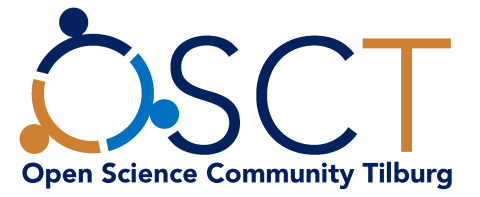Open Access Lab
Green, Gold & Self-Publishing: do you want your academic article to be findable and readable by the largest possible audience? Find out about the many ways you can publish open access, and how we can support you, for instance with our Open Access Fund, or Self-Publishing a book or journal?
Open Access: Green, Gold & Self-Publishing
The Open Science program of Tilburg University stimulates Open Access by the Open Access Fund, assists researchers who want to follow the ‘green route’ of open access, and enables scholars to experiment with Self-Publishing.
Video: Revolution: Academic Publishing 2.0
Dr. Marino van Zelst and dr. Hans van Dijk (both TSB, Tilburg University) are venturing to establish a completely new publishing system that radically puts power back in the hands of the scientific community. Interviewer: Richard Engelfriet.
Free access to scholarly content
Open Access stands for the principle of free access to scholarly content. Evidence has proven that Open Access publications, whether articles or books, find more readers, obtain more citations, and increase scientific and societal impact. Therefore, the scientific movement supporting Open Access urges for breaking down the ‘paywall’, the financial barrier set by commercial publishers that blocks free and unlimited access to scientific articles and books.
One way to do this is to make deals with commercial publishers. The Dutch universities arrange this collectively (as part of Universities of The Netherlands) with their annual publisher’s deals. However, many supporters of Open Access (and Plan S) argue that this ‘hybrid’ model of Open Access is not sustainable. Only a part of the publications is set free, and universities have to renegotiate these ‘big deals’ repeatedly. At the same time, commercial publishers seem to make disproportionate profits (35-40 percent, as Jason Schmitt calculated in his critical documentary Paywall, 2018), by selling scientific content, which is almost completely produced and reviewed by academics (paid by taxpayers). For this reason, a growing number of researchers opts for limiting the power of large publishing houses by choosing for different routes. You can go for the Green Route of open access, the Golden Route, or Self-Publishing.

Data sharing is essential to uncover the flaws in the current scientific system
Watch Michèle Nuijten on data sharing in psychologyGreen Route and the Taverne Project
The so called ‘green route’ towards open access means that the researcher claims his copyright and republishes the manuscript of a published article in an open repository, rendering it available for anyone who’s interested. In the spring of 2019 we cooperated within the national ’Taverne project’ to emphasize that Dutch researchers have the right to republish articles after an embargo period of six months (because of the ‘Taverne amendment)’. We assisted academics of Tilburg University who want to make use of this right and to open up their recent works. More than 40 articles published in 2018 became open access. If you want to know about the possibility of disclosing your closed articles, please feel free to contact the Open Science Coordinator: openscience@tilburguniversity.edu
Golden Route and Open Access Fund
Researchers taking the Golden Route of Open Access publish their article in a proclaimed Open Access journal. The good news is that many new Open Access journals are being founded and established. Nonetheless, we must take note that not every scientific field of research has enough OA-options available yet, and that existing OA journals are relatively new and still have to achieve status in their field. There is also the risk of falling into the trap of predatory journals.
Unlike many established (commercial) journals earning profit with subscriptions or pay-per-view, OA journals often have to charge the writer (or his or her institution) a fee for the editorial process, called Article Processing Charges, or APC. Usually universities can cover for the APC’s and the Open Science project of Tilburg University deployed an Open Access Fund. Tilburg-based researchers can apply for the OA Fund via the Research Support division of their faculty.
The APC-funding is only meant for high quality publishing. It is imperative to prevent funding from being collected (or robbed) by predatory journals. A predatory journal is a low quality publication platform that publishes practically everything to gain APC-funding.
Fortunately, there are ways to find high quality OA journals. The Directory of Open Access Journals (DOAJ) enlists professional and reliable journals. Via the Open Access Information Point (Staff only) an you can find more information on the advantages and disadvantages of Open Access, including a checklist to distinguish high and low quality OA journals.
Self-Publishing
It could be, however, that existing platforms do not suffice. Perhaps an OA journal is lacking in a specific field, or the APC’s asked are considered disproportionate. Then you might want to consider Self-Publishing, for instance by founding a new journal with a group of peers. Prof. dr. Ronald Leenes and dr. Aaron Martin of Tilburg University decided that is was necessary to establish a brand new OA journal for the field of Law & Technology.
Another problem encountered especially in fields such as Humanities or Law is not articles but books are the core type of scholarly output. What if you want to publish an Open Book? Book Processing Charges (BPC’s) asked by publishers are quite high, partly because production costs are high. Some specialized OA publishers (Amsterdam University Press, Helsinki University Press) have low or sometimes even no BPC, others though can ask a fee between 10.000 and 20.000 euro. A further option is also to self-publish books. Prof. dr. Jan Blommaert and dr. Ico Maly of the Tilburg School of Humanities and Digital Sciences wrote a book together and decided to publish is themselves. It will be the first in a series of Open Books on culture and society.

Join the Tilburg University Open Science Community
Talk and learn about open science practices, get practical advice, connect with other Open Science Communities
